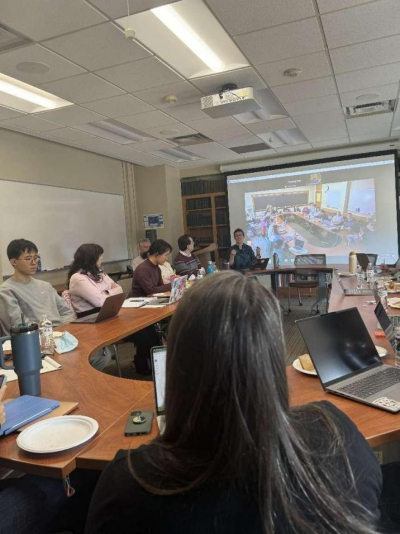History Hub Workshop with Nicole Barnes: "Think Before You Flush"

On February 29, Professor Barnes presented one chapter of her book script, “Think Before You Flush: Your Body’s Secrets to a Healthier Ecosystem”. The professors and students from the Duke and UNC history departments attended the meeting and raised interesting questions about 20th-century China’s manure disposal. Those whose fields lie in agriculture and commerce in modern Europe and America drove the discussion to understand China’s building of a modern face treatment system from a global perspective. They suggested the potential relationship between the manure disposal and the commerce with olfactory based on their respective experiences and knowledge about their countries. Moreover, based on the understanding of Western practices, the participants questioned the use of human excrement as agricultural fertilizer since the West could largely rely on the excrement of big farm animals. Professor Barnes stressed that China was different from the West. Since the small-scale, self-sufficient agricultural economy dominated modern China, peasants worked on small plots of land with small domesticated animals and sometimes shared large livestock. Thus, human manure was an important source of agricultural fertilizer. Meanwhile, Barnes also warned that this was never a universal conclusion applicable to all parts of China. There have been regional differences within China, depending on geographical conditions and lifestyles.
In the mid of the presentation, one prospective history Ph.D. student of Duke projected his interest in the missionary history of Spain in his reading of Barnes’s book chapter and discussed with Barnes the possible role of Spanish missionaries in the disposing and management of human excrement in the process of China’s urban modernization. Subsequently, Professor Duara bridged the manure disposal with the issue of sustainability, which he was always concerned about. He also drew the audience’s attention to the economic context of infrastructure building, which probably shaped the transportation of night soil. At the end of the meeting, some other students also proposed specific inspiring perspectives to approach the historical issue of nigh soil in terms of labor management, community building, and even emotional changes. In short, this meeting enlarged and enriched the topic of modern China’s night soil by bringing into comparison with other countries and various historical perspectives thanks to the contribution of professors and students from the history department.




